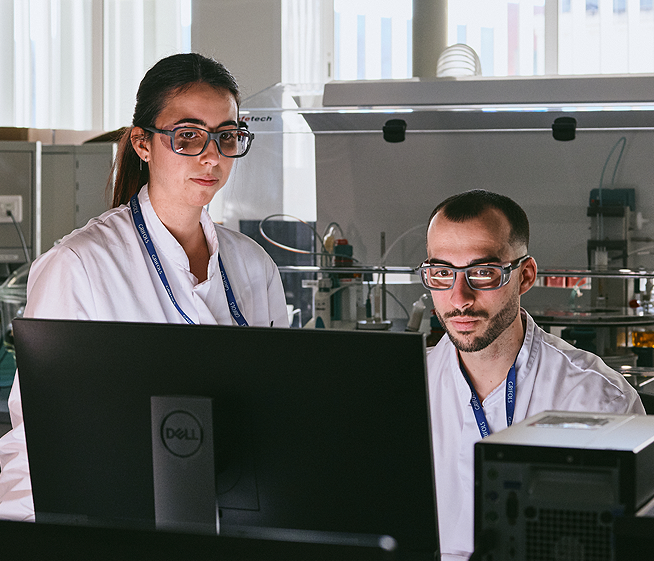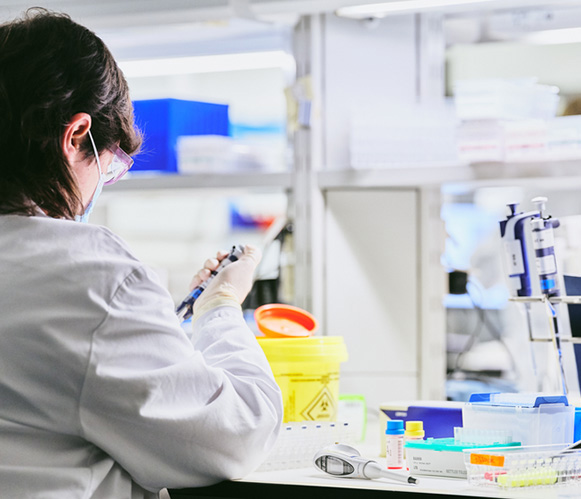Infectious diseases are some of the most prevalent and intractable in the world, presenting unique challenges such as treatment resistance and, in some instances, high transmission. In the wake of a global pandemic, the world is on alert for new contagions and ambitiously seeking new solutions for treatment and prevention. Grifols is laser focused on providing rapid immune coverage in some of the most life-threatening pathogenic conditions.

Expanding our infectious disease treatments
Grifols has invested in treatments for infectious diseases, including hepatitis B virus (HBV), rabies, Zika virus and Ebola.1
Our Biotest group is also working on a breakthrough plasma protein, trimodulin, a unique polyvalent Ig product including IgG, IgA as well as IgM, to reduce dysregulated immune responses in patients with severe pneumonia. A Phase 3 clinical trial is focused on severe community-acquired pneumonia (sCAP), one of the leading causes of death worldwide,2 in patients with high inflammatory markers. A second Phase 3 trial is focusing on a specific subgroup of hospitalized COVID-19 patients with early systemic inflammation.

Developing a new type of drug – recombinant polyclonal antibodies
Our GigaGen group is taking a groundbreaking approach to treat infectious diseases, such as HBV, a widespread disease with significant morbidity. Despite currently available therapies and vaccines, HBV affects more than 296 million people worldwide,3 resulting in more than 800,000 deaths each year.3
The HBV recombinant polyclonal drug product in clinical development consists of more than 1,000 anti-HBV antibodies made in the laboratory by reproducing the antibodies generated during a natural immune response. This approach could ensure that the therapy covers the large diversity of circulating HBV variants, given that the diversity of antibodies is selected and manufactured in the laboratory and does not need to be isolated from plasma.
GigaGen technology will also be used for the development of recombinant polyclonal antibody drugs for a wide range of infectious diseases. Through a contract from the U.S. Biomedical Advanced Research and Development Authority (BARDA) GigaGen is exploring a high-potency recombinant polyclonal antibody drug designed to neutralize all seven variants of botulinum toxins and a second biothreat of interest to the agency. This work is an example of the potential platform applicability for the rapid development of recombinant polyclonal antibody drugs against high-priority emerging pathogens and toxins.
1 Serra A, Marzo N, Pons B, Maduell P, López M, Grancha S. Characterization of antibodies in human immunoglobulin products from different regions worldwide. Int J Infect Dis. 2021;104:610-616. doi:10.1016/j.ijid.2021.01.034
2 Wunderink RG, Waterer GW. Clinical practice. Community-acquired pneumonia. N Engl J Med. 2014;370(6):543-51. doi: 10.1056/NEJMcp1214869
3 WHO (https://www.who.int/news-room/fact-sheets/detail/hepatitis-b)
Developing Treatments
Patients are at the center of our far-ranging scientific research to develop therapeutic solutions to some of the world’s most pressing healthcare challenges.